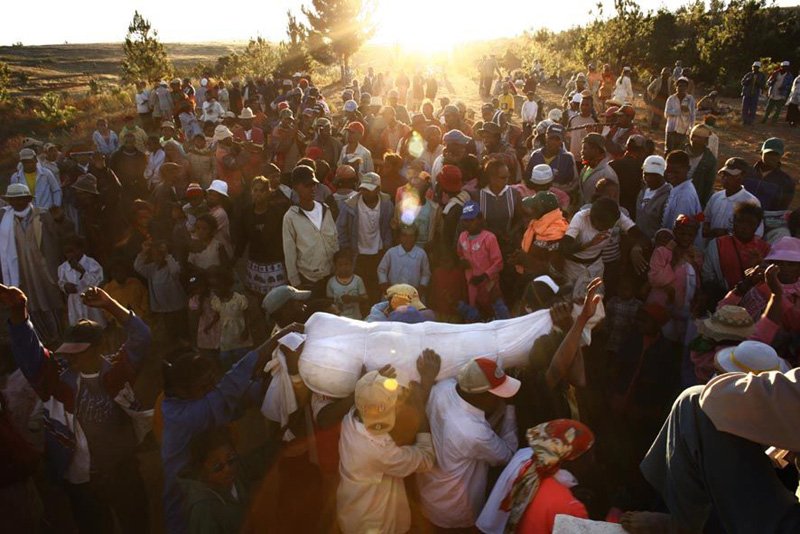Famadihana
In the latest of her reminiscences about volunteering in Madagascar, Theresa Haine recalls local burial customs
The one thing that struck me when I travelled widely in Madagascar was the huge tombs outside every village. The people were very poor and lived in thatched mud or wooden huts yet they somehow built and lovingly maintained these magnificent tombs. When I asked about this I was told that a house is for a person’s lifetime but a tomb is for eternity.
There is a custom in many parts of Madagascar called famadihana which involves emptying the tombs at decent intervals in order to over-wrap the bodies of the ancestors in new silk shrouds. I was invited to two of these sad/joyful occasions. The second one felt very personal as it involved the family tomb of a friend of mine and his parents (both of whom I had known) had expressed the wish to be wrapped in the same shroud for all eternity.

The early missionaries dismissed famadihana as a pagan ritual but at my first famadihana Christian prayers were read before the tomb was opened and when I was allowed to enter the tomb at the second famadihana I found a huge and beautiful painting of the Virgin Mary on the wall so the ceremony can no longer be called pagan.
The first thing that happened at the second famadihana was a festive meal with all the family. Then we processed to the tomb and the door was unblocked. One by one the bodies, wrapped in their silk shrouds, were carried out and laid on mats outside. This was the moment for memories and tears but soon the ritual continued with the new silk shrouds being displayed. There were at least thirty of them on that occasion. The bodies were wrapped in these new shrouds and then carried seven times around the tomb “so that the ancestors should not get confused and come into our houses by mistake”. They were replaced in the tomb and the doorway blocked up.
The whole family was present, children included, and they were encouraged to ask questions, even to touch the re-wrapped bodies. Though a strange idea to us, it seemed good to me – the children understood death and did not fear it. They understood well the idea that the spirit has gone to God but that bodily remains are still there and should be honoured. I felt very privileged to have been included on such an intimate family occasion.